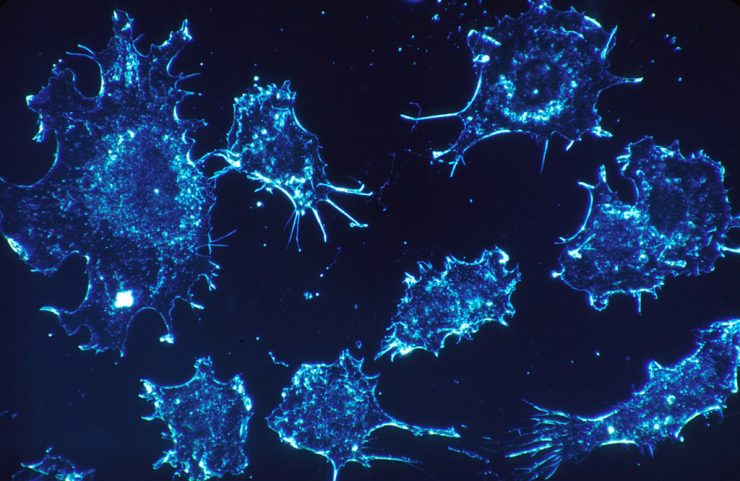Scientists and researchers around the world have been trying to come out with a method to deal with cancer that will eliminate the ill effects of chemotherapy. Chemotherapy is the most prescribed treatment for most cancers, but chemotherapy has long-term and short-term side effects on almost every part of the body including the heart, nervous system, bones, kidneys etc. For patients with more aggressive forms of cancer like pancreatic cancer, lung cancer etc. the situation is very grim because there is no treatment for these particular cancers.
But now things might change because a new study published in Oncotarget by researchers from Tel Aviv University has been able to identify three proteins that are capable of killing cancer cells when they are dividing.
The researchers were led by Prof. Malka Cohen-Armon of TAU’s Sackler School of Medicine. Prof. Shai Izraeli and Dr. Talia Golan of the Cancer Research Center at Sheba Medical Center, Tel Hashomer, and Prof. Tamar Peretz, head of the Sharett Institute of Oncology at Hadassah Medical Center, Ein Kerem also collaborated in the study.
The researchers discovered a mechanism that could lead to self-destruction of cancer cells. It involves specific proteins that affect the stability of the spindle in cancerous cells. The spindle performs an important role in cell division; it is responsible for preparing duplicated chromosomes for segregation into the newly formed cell during division. Compounds called Phenanthridine derivatives were able to slow down the activities of the proteins which led to a distortion of the spindle structure. Segregation of chromosomes did not occur and cell division was prevented. Unable to grow, the cancer cells died out pretty quickly.
Researchers used cancer cell cultures as well as mice modified with human cancer cells to conduct the research. Biochemical, molecular biology and imaging technologies were used to observe how the mechanism worked in real time. The mechanism was tested against incurable cancers like breast, lung, ovary, colon, pancreas, blood, brain cancer. They are now testing whether the Phenanthridine derivatives can test two aggressive cancers; pancreatic cancer and triple negative breast cancer that don’t respond to chemotherapy.
“Identifying the mechanism and showing its relevance in treating developed tumors opens new avenues for the eradication of rapidly developing aggressive cancers without damaging healthy tissues,” said Prof. Cohen-Armon.
(Writing by Sai Bhargav; Editing by Zainab Asif)





















